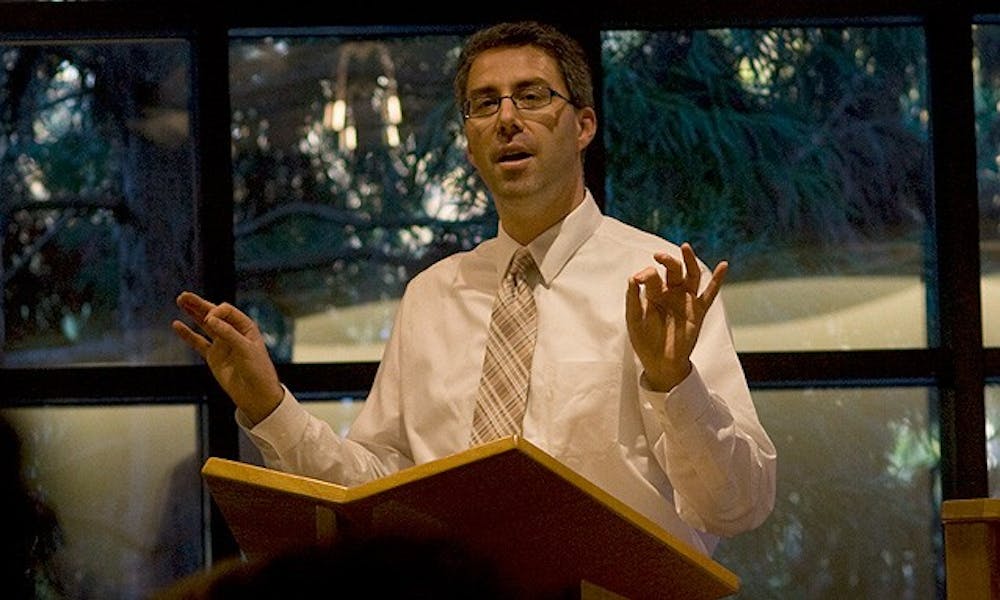College students often set out with the goal of changing the world. But for Dan Butin, dean of the school of education at Merrimack College, the academic approach to achieving that goal is ineffective.
Butin made this point in front of an audience of about 100 undergraduate students at the Freeman Center for Jewish Life Wednesday. The lecture acknowledged the value of community service programs at universities but offered a realistic perspective on the actual effect of the service students do.
“Something like 90 percent of universities believe higher education should be engaged with the community and well over 50 percent go so far as to say community service should be a standard part of college education,” Butin said. “But activism doesn’t just occur in the community. It’s a complex process.”
To the surprise of many in the crowd, Butin claimed studies have shown that no institution—whether academic or purely social—has been able to change the world with its service. He said he agrees that institutions make a lot of progress, but they in no way reach the ultimate goals they set for themselves.
Butin said top scholars have concluded that the national movement of service learning has stalled. Butin said he believes the cause of this standstill to be a lack of communication between social service groups in various parts of the country with only a “vague conceptualization” of the goals.
In the middle of the lecture, Butin responded to the concern that many students do community service to build their resumes, a point that was voiced by a student in the audience. Butin agreed and went on to state his belief that without the “right” motivation, students are less likely to put in the necessary time to carry out effective community service.
“You can’t master anything in four years, let alone one term,” he said. “There are cultural, technical and political implications in community service, but if the 12 hours a week are for no one but the ambitious student then something is wrong.”
Butin added that the one way to address this issue is to incorporate service-learning into an academic program. He said some may be surprised to hear about a community service major or master’s program, but noted that about 40 schools across the country have already implemented these course options. Creating service learning academic tracks is important, Butin said, to encourage students to pursue this as a passion, not a hobby.
A constant theme in the lecture was that community service is not something one does, but something one is.
“It wasn’t just for education students,” said Service Learning Program Coordinator Kristin Wright, who organized the event. “The service learning students just want to be part of the larger conversation at Duke about civic engagement and want to be part of the cheerleading and the raising the questions about service learning and to improve what we do here for both the students and the community.”
Sophomore Benton Wise said he appreciated that Butin was candid about his views on service learning and was able to criticize the flaws rather than propagate positive yet unrealistic evaluations of community work.
“He’s right, service learning is not the answer to enforcing classroom subjects such as history or math,” Wise said. “It is the question and should be approached academically, like all other societal problems to be answered.”
Concluding his lecture, Butin refuted the claim that his views on service learning were pessimistic.
“I mean, it’s only pessimistic if you begin with the assumption that your job is to save the world,” Butin said. “It is actually incredibly exciting to think the world is an very complex place and it is my job to figure it out. You can’t solve everything in one semester—it’s a multi-step, multi-directional process.”
Get The Chronicle straight to your inbox
Signup for our weekly newsletter. Cancel at any time.

